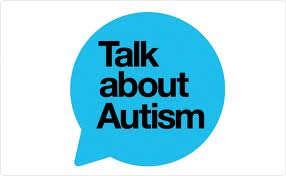Eliminating the Source: What Causes Autism
Many parents hope that in finding a source of autism, this disorder can be cured or prevented. Unfortunately, scientists have yet to find one single reason why children develop autism. It is possible that someday autism will be linked to a specific gene abnormality, but the more likely source is not one thing, but a number of factors in a child's world. Autism cannot be prevented or cured, so the best we can do to help autistic children and adults is be understanding and willing to compromise to make the world comfortable for them and ourselves.
First off, there are certain things that do not cause autism, and these myths should be laid to rest immediately. Most importantly, bad parenting does not cause autism. In the past, mothers were blamed for traumatizing their children with cold parenting techniques, which was thought to lead to autism. This is simple not true. Autism is also not caused by malnutrition, although food allergies occur in my autistic children and some autistic children do benefit from taking daily vitamins.
There are many links between autism and the brain. Most people with autism have larger brains and they are "wired" differently than a typical brain. Differences occur in many parts of the brain, so it cannot be targeted to one specific brain malfunction overall, but rather a brain malfunction in general. Autistic children also show signs of an immune deficiency. Evidence in this study is not yet strong, but research is still being done. Many autistic individuals have other health problems related to immune deficiencies. Overall, these things all seem to point to genetics. Although autism is not the parents' fault, it is most likely that autism was found elsewhere on your family tree, and it is not uncommon for parents to raise more than one autistic child. Autism may also be linked to vaccinations, although this is still being highly studied. The benefits of vaccinations greatly outweigh the risks of them causing autism, so you should not deprive your child simply because you are fearful. Talk to you doctor if you have concerns about vaccinations.
Nobody knows what causes autism. Therefore, we can do nothing to prevent and cure it, but rather we can simply treat the autistic people in our lives with the best of our ability. Becoming educated in autism is the key-the more you know about the disorder, the better you can help individuals who suffer from it. Autism is a complex problem, and as researchers develop new understandings of the way it affects the body, better treatment options will become available, with the hope that someday we will be able to cure this disease.
Many parents hope that in finding a source of autism, this disorder can be cured or prevented. Unfortunately, scientists have yet to find one single reason why children develop autism. It is possible that someday autism will be linked to a specific gene abnormality, but the more likely source is not one thing, but a number of factors in a child's world. Autism cannot be prevented or cured, so the best we can do to help autistic children and adults is be understanding and willing to compromise to make the world comfortable for them and ourselves.
First off, there are certain things that do not cause autism, and these myths should be laid to rest immediately. Most importantly, bad parenting does not cause autism. In the past, mothers were blamed for traumatizing their children with cold parenting techniques, which was thought to lead to autism. This is simple not true. Autism is also not caused by malnutrition, although food allergies occur in my autistic children and some autistic children do benefit from taking daily vitamins.
There are many links between autism and the brain. Most people with autism have larger brains and they are "wired" differently than a typical brain. Differences occur in many parts of the brain, so it cannot be targeted to one specific brain malfunction overall, but rather a brain malfunction in general. Autistic children also show signs of an immune deficiency. Evidence in this study is not yet strong, but research is still being done. Many autistic individuals have other health problems related to immune deficiencies. Overall, these things all seem to point to genetics. Although autism is not the parents' fault, it is most likely that autism was found elsewhere on your family tree, and it is not uncommon for parents to raise more than one autistic child. Autism may also be linked to vaccinations, although this is still being highly studied. The benefits of vaccinations greatly outweigh the risks of them causing autism, so you should not deprive your child simply because you are fearful. Talk to you doctor if you have concerns about vaccinations.
Nobody knows what causes autism. Therefore, we can do nothing to prevent and cure it, but rather we can simply treat the autistic people in our lives with the best of our ability. Becoming educated in autism is the key-the more you know about the disorder, the better you can help individuals who suffer from it. Autism is a complex problem, and as researchers develop new understandings of the way it affects the body, better treatment options will become available, with the hope that someday we will be able to cure this disease.

.jpg)
.jpg)













.jpg)




.jpg)













